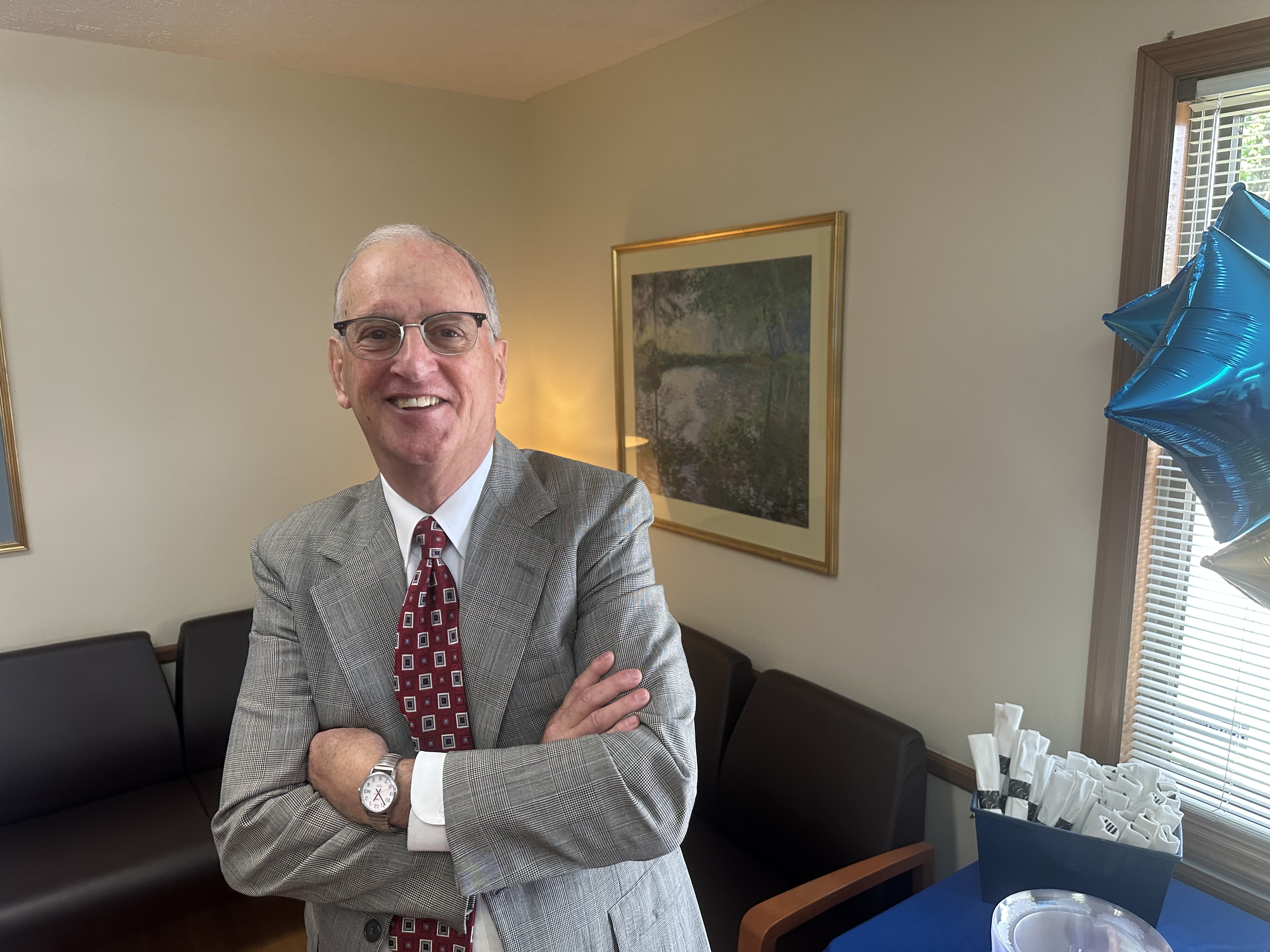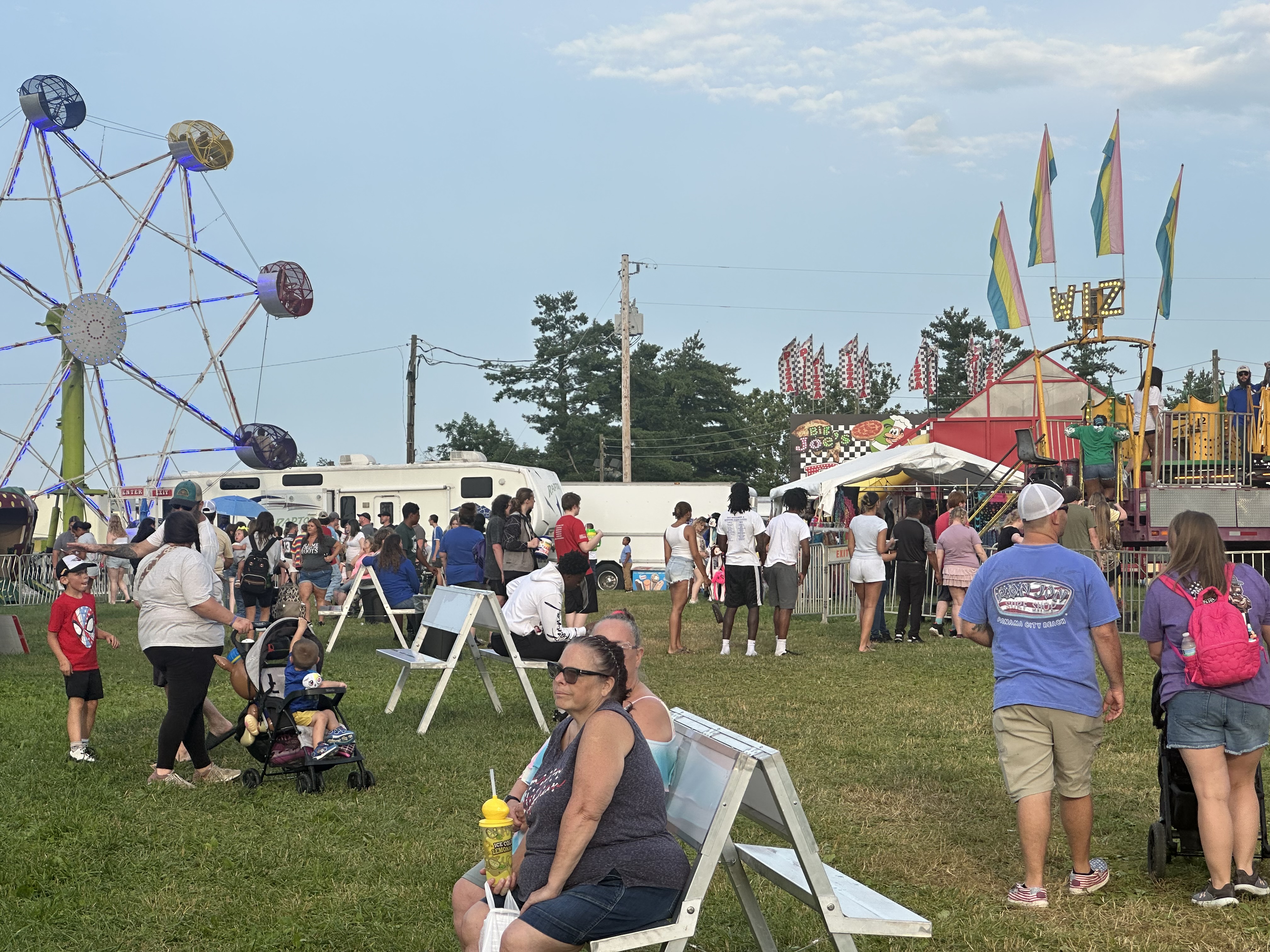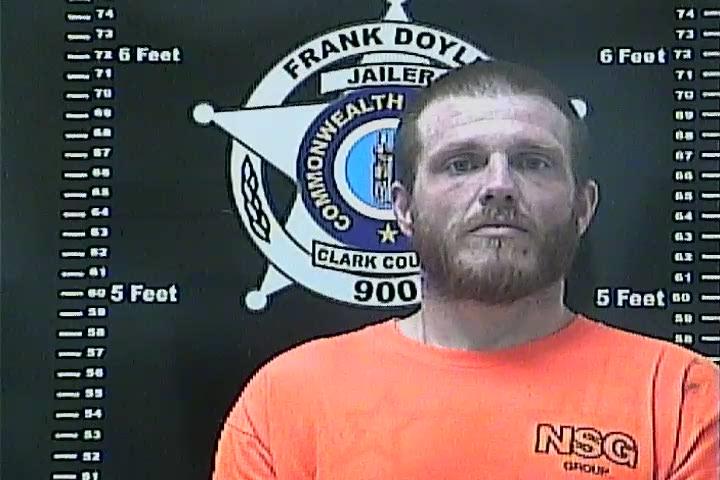Closer Look: Discussion series to focus on diversity, equity
Published 11:05 am Monday, March 4, 2019

- Edward Palmer
The 2017 Waving the Community’s Flag report for the Greater Clark Foundation revealed a significant divide caused by race, class and culture.
Jen Algire, president and CEO of the Greater Clark Foundation, said this year, GCF and others hope to bridge that divide in Clark County by inviting the community to free training sessions focused on diversity, equity and inclusion throughout the year, which she hopes will later result in meaningful action.
“This has been many years in the making from many different levels,” Algire said.
The report
The Waving the Community’s Flag report noted a significant divide in regards to race and culture.
According to the report, one white leader in the community said, “There is still a gross ignorance about what are other’s cultures. It’s almost comical how much we don’t know each other.”
Another noted, “Some just want to build a wall and say, ‘Well, if you could just get rid of that group, this community would be OK.’ Well, we need to take a look at that group, embrace their challenges, look at their strengths, and see how we help raise that group up.”
Another person in the report said, “We have an issue with race. So I think if we truly want to know the impact of racism in our society, we have to talk to the African-American members of our community and get their perspective.”
According to the report, others widely echoed these sentiments throughout conversations.
An African-American community member put it this way, “I don’t know what everybody else has said, but we just sweep it under the rug. The community is segregated by race. Now, we don’t have riots and shootings every single night; no, that is not what I am saying. But there is still a great divide here.”
Another person said, “The town struggles with diversity. It hasn’t embraced diversity and recognized it or addressed it properly.”
The report noted one festering symbol of this struggle is how the Labor Day Weekend Festival and Pioneer Festival have competed for the public’s attention for 38 years, creating a mostly unrecognized frustration in the black community.
In the remainder of this report, the divide of race and culture seemed to permeate virtually every aspect of community life.
Bridging the divide
At the same time, there was a belief among some noted in the report that efforts are being made to bridge this divide, even if progress is slow.
One person, “You still have that separation, but it’s not from a lack of trying.”
Algire said the sessions are just one of the many efforts the community is making to address the reported divide.
She said the sessions are also a response to community members expressing, over the past several years, a desire to understand the historical and contemporary ways race, class and culture impact individuals and the community.
“We want all people in our community to feel a sense of belonging and safety,” Algire said in a statement. “Several recent reports show many of our neighbors don’t feel anything close to that. This series can help change the way our community interacts. We must understand the past without being trapped by it, embrace the present without being constrained by it, and look to the future guided by the hopes and courage of those who have come before us.”
The public innovator training was the catalyst for a new community group, Better Together Winchester, which focuses on bridging divides of race, class and culture.
Kelly Hutchens, of Better Together Winchester, said this work is crucial because it will help the community develop an understanding of how personal attitudes affect interactions with others.
“Once we understand, we can consciously choose to make changes in ourselves,” Hutchens said in a statement.
In an email, Algire said this group had spent significant time relearning and unlearning the nation’s history to gain a greater understanding of how and why low interracial trust and racial divides persist and what it will take to bridge these divides.
Algire said GCF secured a group of co-sponsors who have come together to help the community understand the historical and contemporary impacts of race, class and culture.
“With support and leadership from the Clark County Health Department, Clark Regional Medical Center, Better Together Winchester and The Greater Clark Foundation, we have an opportunity to come together for a yearlong learning journey that will help bridge divides and promote a community that works for all,” Algire said in an email.
Candice Tackett, director of physician relations and industry at CRMC, said the hospital is committed to ensuring every patient the highest quality of care, and diversity, inclusion and equity has a role in that commitment.
“As part of that commitment, our hospital staff is tuned in to issues of unconscious bias and disparities in health outcomes based on race, class or culture,” Tackett said in the news release. “Trainings like this help us address these issues head-on while providing all residents in our community the best health care possible.”
Training sessions
Pastor Edward Palmer will lead community members on a learning journey. A nationally and internationally recognized voice in leadership development, he will guide participants to an improved personal and collective understanding of diversity, equity and inclusion.
Topics include implicit bias, avoiding cultural collisions, let’s talk about race and a final session to tie everything together. Palmer will give community members the tools to move forward together to ensure just and fair inclusion for all members of our community.
The first topic is implicit bias. Palmer has led previous presentations on implicit bias to schools, businesses and more.
Palmer is the pastor at for the Sign of the Dove Ministries International in Radcliff. According to the website, Palmer has served as a city councilman. He was also appointed as chair for the Kentucky Subcommittee on Equity and Justice for All Youth as well as a member of the Juvenile Justice Advisory Board.
Community members have four opportunities to attend the implicit bias session:
— Friday, March 8: 8 to 11:30 a.m.; 1 to 4:30 p.m.; or 5:30 to 9 p.m.
— Saturday, March 9: 8:30 a.m. to noon.
All sessions will take place at the Clark Regional Medical Center in the Meyer conference room. Each two- to three-hour interactive session includes a presentation and group discussion.
Sessions are open to the entire community, and many attendees will be able to gain about three and a half hours of continuing education credits for free.
Community members are encouraged to attend all four classes.
The courses planned for the following months include:
— May: Avoiding Cultural Collisions
— September: Let’s Talk about Race
— November: Tying Things Together.
Algire said the sessions build on one another. She said people are often uncomfortable talking about these topics, but it’s a conversation that needs to occur so the community can move forward together.
“There’s a lot of misunderstanding, especially among white people, about what do we mean when we say bias, or that we have structural racism, or that we have class differences … there are aspects of day to day life that we take for granted,” Algire said. “When people bring it to our attention it’s easy to be defensive … One of the hardest issues for white Americans to talk about is race and racism … Race is a socially constructed idea … And the concept of race and racism affects all of us. This is an opportunity for us to really talk about what is race, why it was even conceived, how it impacted us and is still impacting us today …”
GCF will release the specific session dates and times for the remaining topics at a later date. According to the news release. GCF will also have individual sessions planned for sectors such as health care, first responders, education and more.
Implicit bias
Palmer’s implicit bias course will help participants recognize underlying biases of which they may not have been aware. In an interview with Charles Rotramel and Gregg Taylor with the reClaimed podcast, Palmer said he begins his implicit bias classes by telling the audience what the course will not cover.
“Sometimes when people hear that we are going to talk about implicit bias or racial bias, they automatically think we’re talking about racism and trying to identify the racist person in the room,” Palmer said. “I let people know the implicit bias conversation is not a conversation about race, racism or about individuals being racist or hateful or bigotry. It’s a conversation about the implicit associations that have developed over our lifetime.”
The training also helps participants understand how those biases impact their communities and develop skills to reduce the influence of bias in daily life.
“To recognize one’s implicit bias does not make one a racist, but helps to bring understanding to this unconscious lens through which we see and judge others on the basis of appearance,” Palmer said in the news release.
Palmer told interviewers many people aren’t aware of the underlying influences caused by implicit associations.
“We continue to have responses to people that are not creating the outcome that we want to see,” Palmer said.
Palmer said he also presents data to the audience, outlining the racial disparities in various systems such as school discipline, poverty levels and more. Implicit bias can be a contributing mechanism to these racial disparities, he said.
“Implicit associations are stereotypes and attitudes that affect our understanding, our feelings about people, and ultimately, the decisions we make concerning people that affect us on an unconscious level,” Palmer said.
The impact
Algire said having diversity, equity and inclusion only strengthen communities.
Diversity is the representation of all our varied identities and differences — collectively and as individuals, according to GCF’s website.
“Diversity is part of the conversation,” Algire said. “It’s about who’s at the table and trying to make sure we are representing all of our neighbors.”
Equity, according to GCF’s website, seeks to ensure fair treatment, equality of opportunity and parity in access to information and resources for all, which is possible in an environment built on respect and dignity.
Becky Kissick, Clark County public health director, said equity plays a crucial role in sectors across the community.
“Equity lays the foundation for public health transformation,” Kissick said in the news release. “We must examine ourselves and our community with a critical lens and have honest conversations to move forward together ensuring just and fair inclusion for all members of our community.”
Algire said inclusion builds a culture of belonging by actively inviting the contribution and participation of all people. No one person can or should be called upon to represent an entire community, she said.
“Inclusion is how do you build a culture of belonging,” Algire said.
Working to make the community more inclusive, diverse and equitable leads to more notable economic development as well, Algire said. Organizations and countries that tap into diverse talent pools are stronger and more efficient, and organizations will better serve their customers if they reflect the diversity of their customer base.
Algire said this year’s courses would dive deep into these topics and more. Interested participants in the sessions can preregister online. Space is limited, so Algire said she recommends signing up early and invites people to be a part of a much-needed change in the community.
“It’s all of our responsibility to make sure we are included and feel a sense of belonging,” she said.







